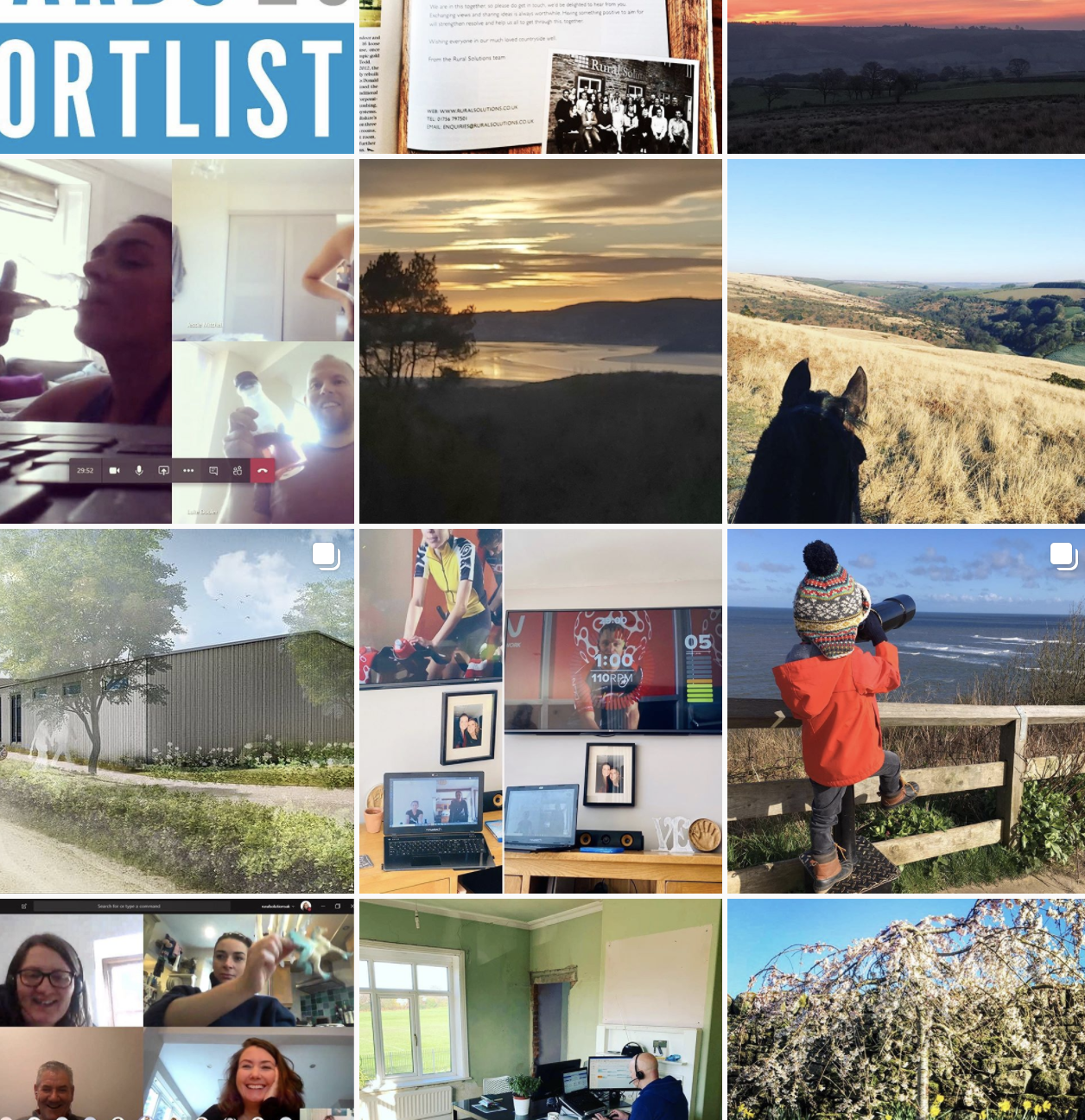Instagram images from Rural Solutions
When times are tough, it can be tempting for businesses to batten down the hatches and concentrate on survival. It can also be difficult, at sensitive times like this, to know how to communicate with clients and customers, but what’s important is to keep communicating even if it’s not business as usual at the moment.
Although we are in unchartered waters, past experience such as recessions have shown that not communicating in a crisis undermines a brand and businesses that maintain PR and marketing are usually the quickest to recover.
However, the way in which you do it is critical, and the challenge is to be relevant and empathetic, to build your story and to keep an objective eye on the future albeit this is harder when for many businesses, it is uncertain what that future looks like.
Your audience still wants and needs to hear from you, and in some ways is more present than ever. Social media browsing is up 61% and web by 70%, according to research insights consultancy Kantar, and the same research shows that consumers are looking to trusted brands for reassurance. Journalists are also increasingly seeking stories beyond Covid-19.
The opportunity for building community and loyalty across channels, from social media to digital communications and the press, has rarely been stronger. Short-term messaging will in many cases need to be adapted to be sensitive to what is going on and relevance is key. Share content that keeps you and your business front of mind but also speaks to the needs of your audience. Positive association now will build greater long-term engagement.
We have seen some very impressive examples of rural businesses pivoting to respond positively to the situation – doorstep deliveries from farm shops, gin makers producing hard-to-come-by hand sanitiser, farmers donating PPE. Even in the absence of physical aid, many rural businesses who cannot currently trade – such as tourist attractions, wedding venues and holiday lets – have supported customers with activities they can do at home, from free yoga to cookery demonstrations and inspiration for home schooling children.
Some consultancies, such as Rural Solutions, are offering timely pragmatic advice through newsletters and free webinars, and at JCM&Co we have organised virtual press briefings and ‘Coffee & Cake’ free training sessions on Zoom.
These all offer genuine solutions and distractions while still remaining on brand.
With increased social media and online engagement, and, in some cases, people with more time, this is the moment for businesses to tell their stories in longform. Podcasts, blogs and more detailed social media posts are all surging and one of the biggest growth areas has been self-filming for Instagram’s TV (IGTV) and Facebook Live.
For those with enterprises which are unable to operate at the moment, it’s even more important to connect with your audience. Although it can be harder to raise the enthusiasm to do so, it reminds previous and potential customers of why you are special.
Daylesford Farm has engaged brilliantly with customers on IGTV to talk about what plants to grow now and keeping hens among other colourful posts, while Jimmy’s Farm and Barleylands Farm Park have been bringing the farm park into people’s homes with the stories behind the animals in film.
Agri-tourism advocate, Caroline Millar of Go Rural, has been voluntarily bringing together Scottish rural tourism businesses to support each other with regular Zoom meetings and recently ran a joint Lambathon, bringing lambing into living rooms and gaining press coverage. Another of their stories made BBC news.
Some farm shops are hosting Facebook Live with producers, putting a face to the products in the shop when customers return. Customers may be learning more than they ever knew before which builds loyalty and stimulates conversation and, from this, word-of-mouth referrals.
Good news stories and updates from the countryside are also a beacon in a world of negative news, although the tone should always be appropriate, showing support and boosting morale rather than gloating.
You can reach out to customers in different ways. Use or start an enews or send a positive one-off email update to let your customers know what’s going on and how you are addressing the current status quo. Maximise your digital spaces – whether it’s setting up or spicing up existing social profiles and feeds, live streaming or a webinar series; revamping your website or creating content for blogs that you can push out over time.
It’s hard to plan for the future with the dominant uncertainty, but the long-term goals for the business should not be forgotten as short-term tactics are implemented. Contrary to being in retreat, businesses should be proactive in their marketing at this time as meaningful relationships can be built and maintained even during a crisis with appropriate communications. While the rewards may not currently be financial, the returns should come as we all rebuild together as a nation.
